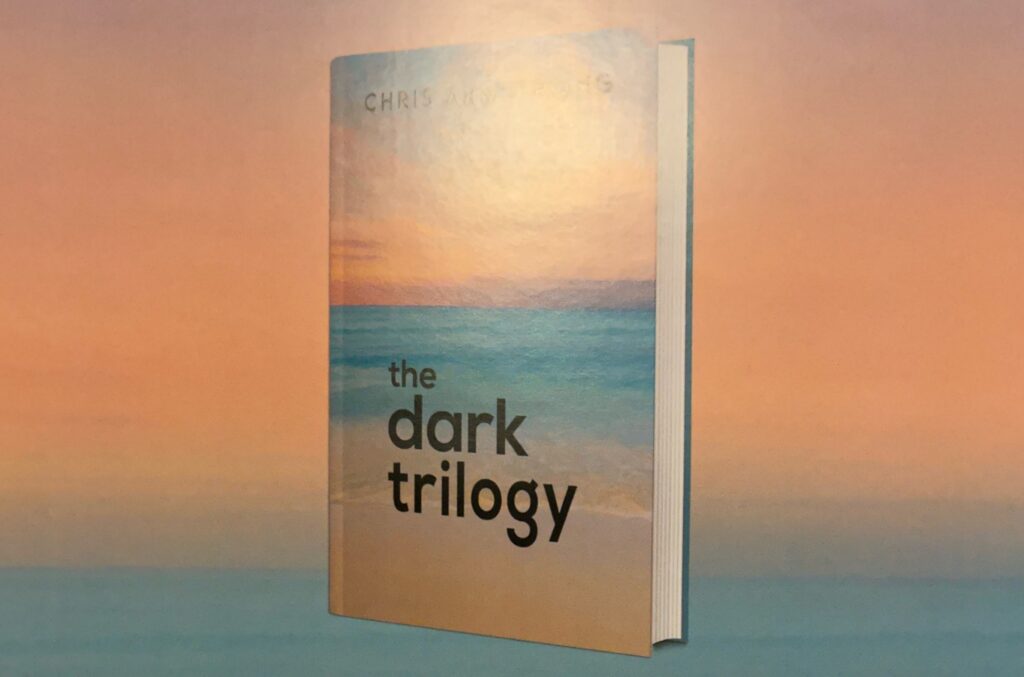
Much of The Dark Trilogy deals with my past. A while ago I read, and felt that I had to respond to, a blog post – Clearing Out – by Andrew Green, one-time National Librarian of Wales. He had written:
I’ve been clearing out. Clearing cupboards in the front room, full of books, files, magazines, papers, photos, games, maps and other detritus. Many of them have been there since the cupboards and the bookshelves above them were built some thirty years ago…
The cupboards have yielded plenty of surprises. Some things I’d entirely forgotten I’d kept. Funeral services of long-dead aunts and godmothers… Some things have been easy enough to discard… But between the can-go’s and the must keep’s there’s another class of object I worry about, the borderline cases. Take this newspaper article with an image of me and other hopeful cyclists about to set off from Cardiff City Hall to Aberystwyth to raise money for Nicaragua. If it goes, so does all evidence of me as I was then. But that raises a serious problem – a problem, you might say, in the philosophy of time, or of consciousness. Who was I then? And I am the same person now as I was then?
By chance, almost exactly a year earlier, the poet and writer Helen May Williams had written in her blog:
“When I was seven years old, I remember writing an essay about ‘Who am I?’ In it, I pondered whether the person I was last year was the same as the person I was now, and whether that person would be the same a year hence. I still don’t have the answer to that question.”
My response to Andrew Green – I think I thought that it doesn’t matter whether you are a different person (better/worse!) now to the person you were then: both histories of you are equally important and go to making up your life – was:
I am the last person to talk about de-cluttering… I keep everything!
But there is another side to your archive. I have had so many conversations with relatives – my sister, my sisters-in-law, etc – wishing that they (and I) had paid more attention to the stories that our/their parents told during the years when they were alive. So many attempts to identify people in photographs! So much history lost! To the extent that I am currently working on an annotated and illustrated timeline starting with my grandparents to pass on to my grandsons… who may or may not be interested. Now, or ever! I had thought it near finished. But, alas! Your piece suggests a further annotation: ‘Objects’ [in my cottage] – the pair of china figures, the pewter… much of which came from my grandfather’s house… or the fake fur coat I bought in Liverpool in the sixties!
Spare a thought for the generations to follow who may wonder why Grandad had a… or what Grandad did!
… and what he was like when he was younger… was he the same man then as the man they came to know?
